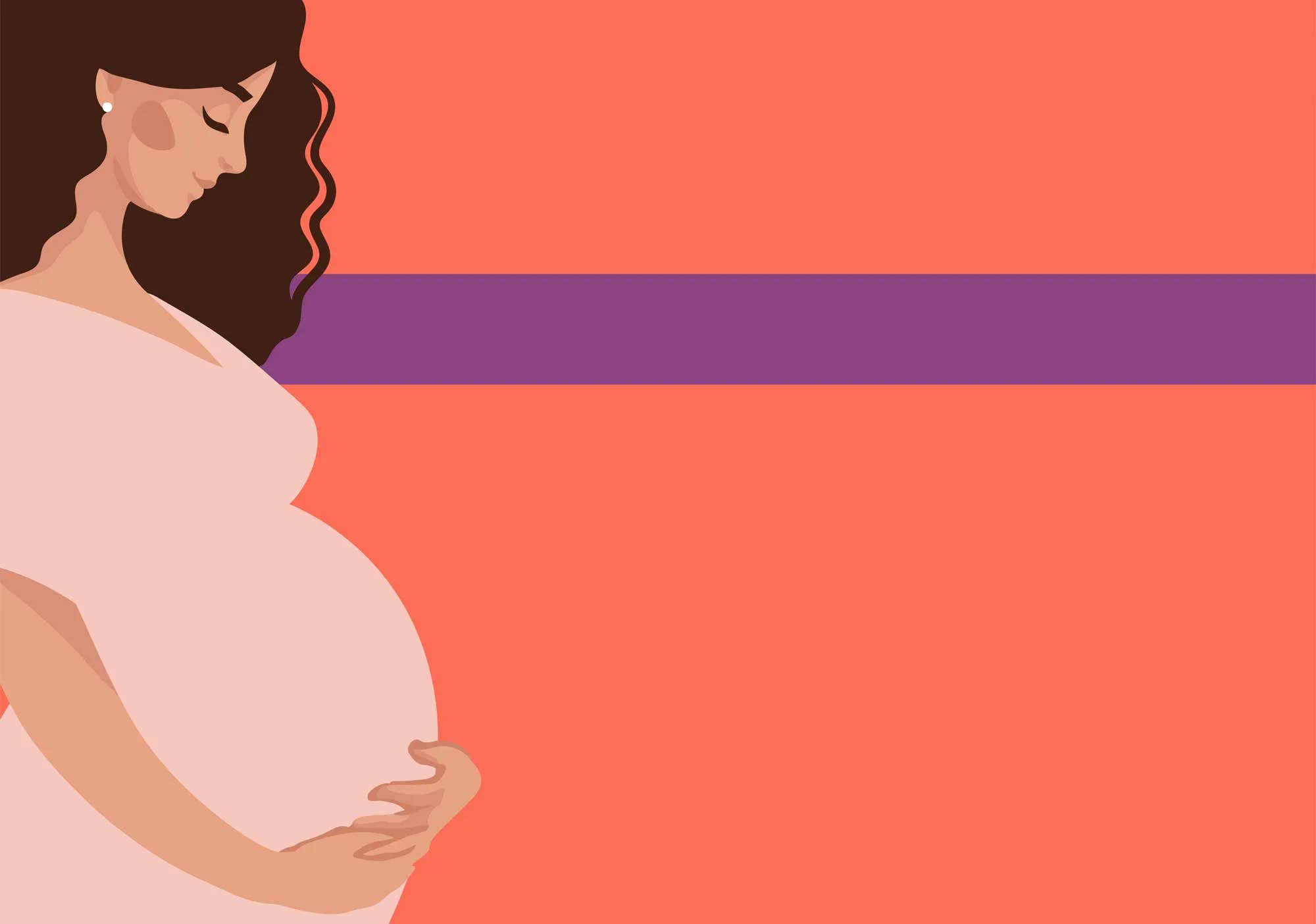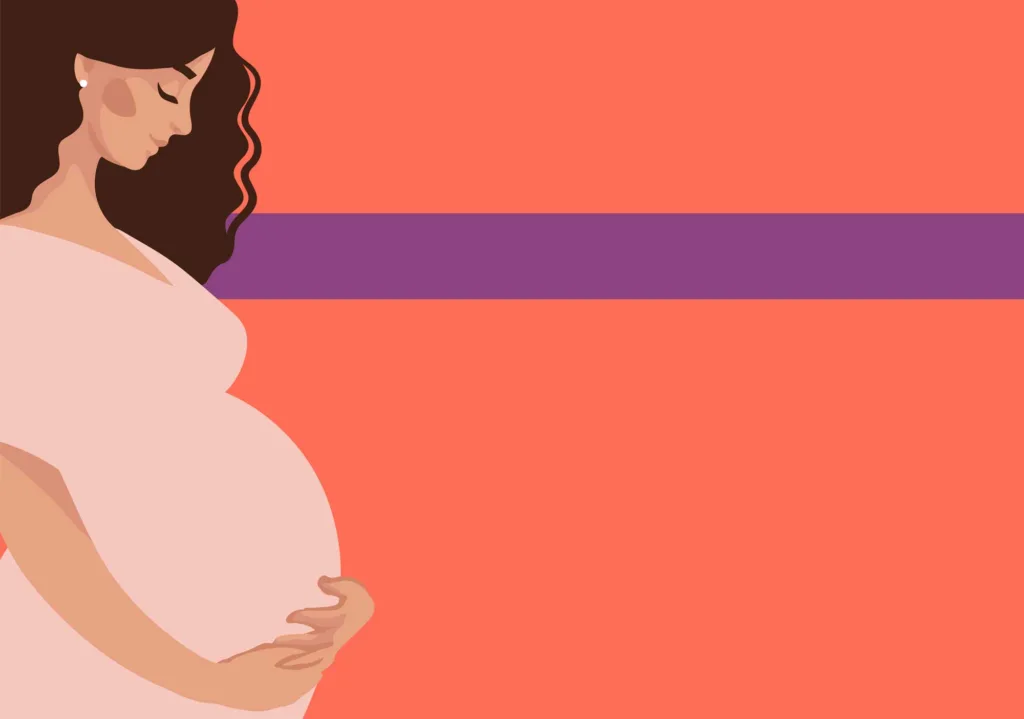Your gastrointestinal (GI) system starts at your esophagus, travels down through your stomach and intestines, and ends in your anus.
Shifting hormones, a slowdown in digestion, lifestyle and diet changes, and your baby’s growth can cause digestive changes during pregnancy.
Nausea and Vomiting
Thanks to hormones, nausea and vomiting are common during early pregnancy.
What’s normal:
- Nausea and vomiting for the first trimester
- A strong dislike for some foods
- Occasional queasiness for the entire pregnancy
What’s not:
- Vomiting that causes weight loss and dehydration
2 out of 10 pregnant people experience severe nausea and vomiting called hyperemesis gravidarum (HG). HG is serious and requires medical treatment.
Constipation and Hemorrhoids
Constipation is very common during pregnancy.
Straining to poop, which can happen if you’re constipated, plus extra blood volume during pregnancy, can lead to hemorrhoids.
What’s normal:
- New or more hemorrhoids
- Occasional bleeding from hemorrhoids
- Hemorrhoids that get worse as you approach your due date
What’s not:
- Severe abdominal pain or cramping
- Fever
- Large amounts of bleeding
- Bleeding that is not from hemorrhoids
Fiber-rich foods like bananas, raspberries and lentils help fight constipation.
Diarrhea
Changes in what you eat, your hormones and lifestyle choices, and constipation can cause diarrhea.
What’s normal:
- Occasional diarrhea without any other symptoms
What’s not:
- Diarrhea with fever, severe pain, leaking fluid, bleeding or regular cramping
Diarrhea can also be a GI bug. Any illness during pregnancy can be dangerous. If you have diarrhea, drink plenty of water and contact your medical provider.
Acid Reflux and Heartburn
Acid reflux and heartburn are some of the most common pregnancy complaints.
Slowed digestion creates more gas and acid build-up, and your baby physically pushes stomach acid up your esophagus.
What’s normal:
- Occasional heartburn
- Acid reflux after eating spicy foods or lying down
What’s not:
- Heartburn so severe you can’t eat, sleep or function normally
Some heartburn medications are safe to take during pregnancy. But talk to your medical provider before taking any medicine.
IBS in Pregnancy
Irritable bowel syndrome (IBS) is a digestive disorder that can cause symptoms like nausea, gas, abdominal pain, diarrhea and constipation.
What’s normal:
- IBS is different for every person, so there isn’t one “normal”
- Your symptoms may improve, come and go, or get worse during pregnancy
What’s not:
- Severe pain, cramping that could be contractions, bleeding or leaking fluid
IBS may mask symptoms of premature labor, so talk with your medical provider to see if you’re at risk and what steps you should take if you have symptoms.
Contact your medical provider if you have any ongoing GI symptoms during your pregnancy or experience any bleeding, fluid leaking, severe pain or regular cramping.

















